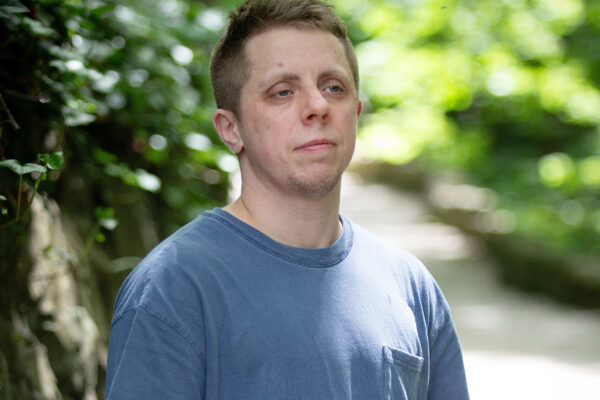ACLU-WV’s newest attorney brings doesn’t just bring with him years of experience in public interest law, Robb Livingood also has first-hand experience standing up against discrimination and transphobia within social justice organizations – demanding that they live up to their missions internally.
"That was a rude surprise for me," said Robb Livingood, who joined the ACLU-WV team in March after years of work in the nonprofit sector, "to find that [discrimination is] coming from the people who are supposed to be defending against it."
This disconnect between mission and practice has shaped his approach as an attorney, leading him to embrace what he describes as a fighting spirit in his work.
When Robb decided to file a lawsuit over one particular case of discrimination, he was assigned an attorney who believed in his cause and, fittingly, would later become his boss, ACLU-WV Legal Director Aubrey Sparks.
His own experiences with discrimination made him want to focus on work where people’s rights were being violated.
“That's when I decided that I would just combine these different disciplines of activism and the law and just reflect that in all aspects of my personal life in pursuing these cases, not just in pursuit of a difference for my own life, but to try to make, like, a wide impact on other people as well.”
In addition to understanding what it’s like to go through the process of filing suit based on having your rights violated, Livingood brings an even more unique perspective to his work: the experience of having once been a far-right conservative.
“I wasn't raised in a progressive household. I grew up thinking that I was this, like conservative, right-wing Christian.”
Despite being raised with a traditional worldview, Robb wanted to see the world even as a young, conservative person in southern West Virginia.
“I'd say the first time I decided I was going to go into law was I'd actually been enrolled in Air Force ROTC because I wanted to be in a job that traveled,” he said. “There are just so many ways someone from Boone County can do that because there's generational poverty.”
But the more Livingood learned about military history, the less comfortable he felt going down that career path.
“I couldn't go through with it because I was bothered by the history of the U.S. military. I wanted to travel because I love other people and wanted to learn about other cultures. So, I dropped out of ROTC, and that was the first time I said I wanted to be a lawyer and help people.”
Robb's love of people and other cultures took him to Japan to teach English and study kendo. It was there, while experiencing Japanese culture and learning martial arts, that Robb found a philosophy that would fuel his legal advocacy in his current role.
"I was most inspired by my students who were kendo practitioners," Robb said. "I learned a lot about the samurai values, about really just living with your whole heart."
This philosophy of being fully present — physically and spiritually — resonated deeply with him.
"Fall down seven times, stand up eight," he said, describing the indomitable spirit he witnessed and ultimately embraced.
When Robb returned to West Virginia, he brought this mindset with him; an antidote to what he describes as the sense of hopelessness that can permeate doing progressive work or even existing in Appalachian as a trans person.
"I carry that to my attitude as a lawyer," he said.
Sharpened by his lived experience and time in Japan, Robb brings determination to his role at ACLU-WV.
"I'm not the legislative person who wants to try to talk everybody into it, but the 'we'll see you in court' person. Maybe I can't convince people to do the right thing by talking to them. But maybe we can convince them by crossing blades with them in court."

